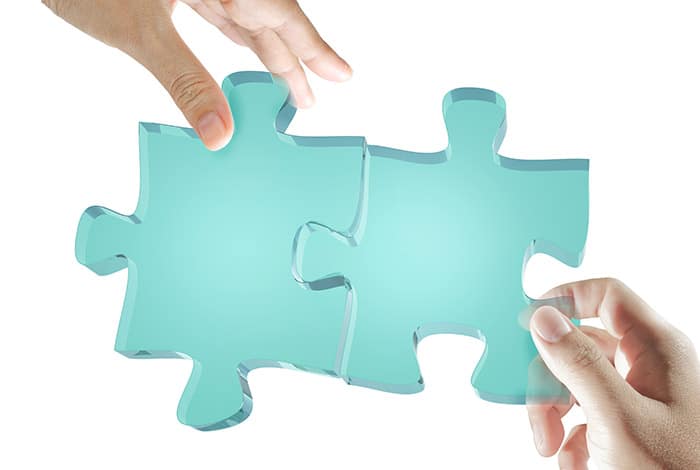Part 3 of a 4-Part Series throughout Mental Health Awareness Month
“We are shaped by our thoughts; we become what we think. When the mind is pure, joy follows like a shadow that never leaves.”
—Buddha
As we explore deeper into the pillars of mental health, it is essential to understand that mental health often holds a negative connotation within our society. We often think of mental health as “something we must treat” rather than part of beings that we must nourish and strengthen. Mental health encompasses our physical health, emotional health, cognitive health, and social health. Over the last couple of weeks, we discussed the relationship between:
Emotional health and mental health
Physical health and mental health
This week we will discuss the critical interlacing between our mental health and cognition. We must nourish and strengthen our mental health to preserve our cognition. When we are crippled with depression or anxiety, we often struggle with our concentration and decision-making skills. But when we practice self-care and nourish our minds, we may find that our work and executive tasks appear seamless.
For some individuals, cognitive problems are only evident during the episodes of mental illness. For other individuals, the cognitive problems are more persistent and occur whether or not an individual is experiencing an episode of anxiety, mania, or delusions.
Defining Cognition
Cognition refers to thinking skills. These are the brain-powered skills we need to recognize, obtain, comprehend, and answer to information. This includes the ability to concentrate, remember, analyze, problem-solve, categorize, and reorder information. All of these high functioning abilities are required to allow us to function adequately in work, social, academic, and family environments. Balancing our bank accounts, paying bills, making a grocery list, fixing a flat tire, and learning which essential questions to ask to help solve a problem are all ordinary cognitive skills we need to function.
Cognitive skills are the underlying skills we need to think, read, understand, remember, plan, and organize.
When individuals are struggling with depression, anxiety, or schizophrenia, getting out of bed can be a struggle, let alone figure out how to pay monthly bills. This has nothing to do with a lack of motivation, unstable moods, or harmful thoughts, but rather cognitive dysfunction is a primary symptom associated with mental health disorders.
Signs and symptoms of cognitive dysfunction
Difficulty concentrating
A decline in work or academic performance
Headaches
Confusion
Unclear thinking (jumbled thoughts, jumping from one topic to another)
A decline in executive functioning (planning, organization and carrying out tasks)
Difficulty sleeping
Memory impairment
Poor decision-making
Poor problem-solving skills
Unfortunately, cognitive problems often go unnoticed or misdiagnosed in individuals struggling with an underlying mental health disorder. Elderly individuals who have depression and consequently struggle with memory problems are often labeled as having dementia. Young women with schizophrenia who experience psychotic symptoms may also be struggling with thought patterns, but their cognitive dysfunction is often overlooked until their psychotic symptoms stabilize. Children who have a decline in school performance may be perceived as having a learning disability or a behavioral problem when struggling with underlying trauma. Cognitive dysfunction should never be ignored, as this is often the first sign that something more significant has occurred.
Cognitive dysfunction and substance abuse
Illicit drugs, prescription drugs, recreational drugs, and alcohol are all known to cloud judgment and impair cognition. Drug and alcohol abuse alone can impair attention, memory, and thinking skills. If substance abuse is combined with mental illness, the cognitive dysfunction can worsen.
Sharpening our minds and taking care of our mental health
Just like our bodies, we must exercise our minds. Mental strength is important to function as a whole in daily life and to overcome any obstacles thrown our way. When we are cognitively healthy, our mental health can flourish.
The following are simple ways we can exercise our minds:
Reading
Writing
Puzzles
Creative outlets (baking, cooking, playing an instrument, making art, sewing, gardening, etc.)
Exercise
Outdoor therapy
We must take more time to nourish our cognition so we can also protect our mental health.
Check back next week to read about the connection between our social life and mental health.
We Are Here To Help!
No matter where you are in your journey to recovery, AKUA can help. We understand that life in recovery can be tough. If you are afraid of a relapse, seeking help for the first time, or trying to get back on track, we have a program for you.
We are committed to the health and safety of you and/or your loved ones, and we are FULLY OPEN & OPERATIONAL. At AKUA Mind & Body, the safety of our clients is our top priority. We are aware of the increased fear and anxiety among most people regarding the current pandemic. Hence, we are doing everything that we can to keep healthfulness and safety.
If you or someone you love is struggling with a mental health illness or substance use and addiction disorder, we can help now more than ever! AKUA Mind & Body provides an integrative treatment approach with multiple levels of care from detox, residential to virtual outpatient programs. With several facilities throughout the Sacramento Region, Los Angeles & Orange County Region, and San Diego Region, we aim to provide our clients with a solid foundation for healing and transformation. Gender-specific and Co-ed facilities available.
Call our 24/7 admissions helpline to seek help today!




